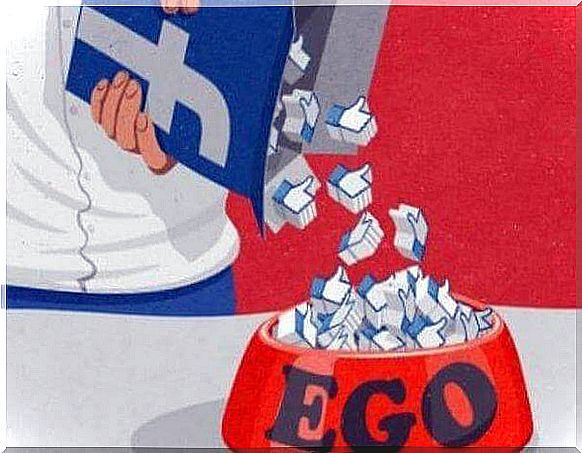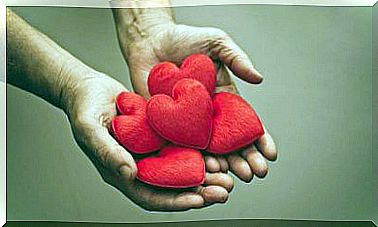Fake Generosity: The Narcissistic Trap

False generosity is openly seen in the world. Some people are so kind and considerate just because they want something in return. Politicians do this, some of our family members do this, and bosses do this with employees because they know that kindness can improve job performance. Except, of course, when an employee falls ill or has an emergency in the family, the boss’s kindness may be lost.
As we can see, there are many interests behind certain empathic and supportive functions. So let’s be careful! In fact, we might make something of these ourselves, unconsciously.

Fake generosity and a narcissistic society
Let’s think, for example, of a parent who gives all his attention to his children. But these children are already adults and have moved away from home, and now they are doing everything they can to live an independent life. Their parents do know that children survive on their own, but he still pays constant attention to his children to make the parent feel better and valued.
This is so common that we have certainly noticed this in a friend of ours or experienced it ourselves. But the reality can be much more complicated if we look beyond our families. Much of our society engages in false generosity.
In addition to this, according to sociology, the world is becoming increasingly narcissistic. It is said that the “I, and only me” generation is growing bigger. This may be frustrating, but social media feeds this extreme need to complain as follows, “Hi, I’m here. Look at me, follow me, like me, give me positive confirmation. ”

Let’s think, for example, of celebrities who use social media to show their generosity to others. They support a variety of social issues and they work with non-profit organizations… But most of the time this is just about selling their own image. They use fake generosity to convince us of how good they pretend to be.
Bill Gates
Let us next look at Bill Gates and the difference between false generosity and true empathy. Once upon a time, much was reported about how some of the richest and best-known people on earth were not very generous. Microsoft made a lot of money and did not donate a penny to any social entity.
But after Bill and Melinda Gates got married, they co-created the Bill and Melinda Gates Foundation. Today, this foundation gives more money for social, health, and educational purposes than almost any other foundation.
Bill Gates must have thought about the importance of helping people in such cases and doing something good for society. This is an example of what genuine empathy looks like. However, it may be that his advisors thought it was good for Microsoft’s image.
Maybe Bill Gates ended up at the point where he needed to donate money so he could feel better. The social recognition he would receive for that donation of money could be satisfactory. This is then false generosity.

4 characteristics of false generosity
Our world needs genuine empathy. Amin Maalouf is a well-known Franco-Lebanese writer and expert on social problems, discrimination and ethical conflicts. He says that if we teach people to be empathetic from childhood, it would help humanity to be more supportive and generous. But current dynamics are putting pressure on us towards chaotic and harmful narcissism.
False generosity is present in all of this. It’s just one part of the narcissistic personality, so it’s important that we’re able to identify it. These are the main characteristics of false generosity:
- False or selfish acts of kindness in the name of power. “I am superior to you. Like it or not, my generosity makes you dependent on me. ”
- It is done to look good yourself.
- The notion that, “without me, you wouldn’t be able to survive or solve your own problems.”
- Manipulation, blackmail and emotional traps.
At the end of the article, we must say that we are all important, unique and magnificent, but we must never forget that we have a commitment to others. We must never forget how to work together. We must always remember how valuable it is to exercise genuine and selfless empathy.









